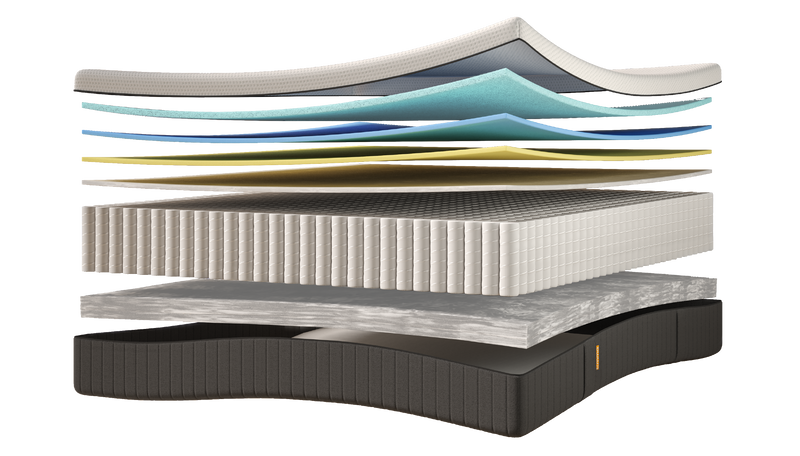WELCOME BACK
Emma Basics!
Up to 55% OFF!
Just in: Next Generation Cooling Innovation More Details
- Delivered to Your Doorstep on average 2-5 Days! 📦
World Leading Sleep Brand
60+ Awards Globally
World Leading Sleep Brand
14,000,000+ Sleepers Trust Our Comfort
88% Customer Satisfaction
World Leading Sleep Brand
60+ Awards Globally
World Leading Sleep Brand
14,000,000+ Sleepers Trust Our Comfort
88% Customer Satisfaction
World Leading Sleep Brand
60+ Awards Globally
World Leading Sleep Brand
14,000,000+ Sleepers Trust Our Comfort
88% Customer Satisfaction
World Leading Sleep Brand
60+ Awards Globally
World Leading Sleep Brand
14,000,000+ Sleepers Trust Our Comfort
88% Customer Satisfaction
Our Bestseller Mattresses
BEST VALUE
Our most awarded memory foam mattress for budget-conscious sleepers
Comfort
Cooling
Motion Isolation
$329
50% offMOST POPULAR
Our 13-inch Hybrid mattress with enhanced support and ideal pressure distribution
Comfort
Cooling
Motion Isolation
$409
50% offPREMIUM CHOICE
Our new best-in class mattress for perfect cooling and absolute comfort
Comfort
Cooling
Motion Isolation
$639
50% offIt's 100% free to return your Emma! If your Emma turns out not to suit you for any reason, feel free to return it. Just simply get in contact with us via our chat support, phone or email and we will refund and collect it at no cost to you.Live support is also available from 08:00 to 18:00 GMT-6, Monday-Friday!
Our risk-free 365-night trial means that you get a full year to decide if your Emma mattress is a good fit for you. This gives you more time to try the mattress for yourself and experience the benefits that our 4Million+ customers have come to enjoy each night!
Helpful Tip: We recommend you sleep on your Emma for at least 21 nights so that you and your body can get suited to your new Emma mattress.
You can begin your 365-night trial today. Our 0% APR financing with Klarna also gives you the option to make 12 equal payments over the next 12 months.
We do offer free shipping within the contiguous United States.
At present, these are our non serviceable territories:
Our free shipping takes approximately 2-5 business days nationwide. Aside from free shipping, we do offer a scheduled delivery option complete with in-home set up in selected areas within the US for a small fee starting from $69 up to $129. If your area is covered, you can avail of this service and choose a date of when to receive your Emma!



See our beds in action online
@alexsalcedo
When we wake up to start our day, we feel recharged and ready to tackle our day! This mattress drastically changed our lives.
@daniellemoss_
My physical therapist said, my back feels less tight than it has in years because of Emma!
@morganmabley
The shipping and set up were seamless and no joke, the day after our first sleep on it, I was telling Danny my back felt better than the day before!
@indulgenteats
The Emma Mattress ended up being the perfect choice for a hot sleeper who's allergic to dustmites like me! Got a cool memory foam layer to help protect against allergens.
@flexwithbeccs
My post-work-out naps have gotten 10x better with my new Emma Original Mattress. Here's to quality sleep!
@bynomads.nl
We just can't get rid of our new Emma Mattress! It's so comfortable and we've very happy with this one!
@loveyolii_
Our rest have improved since we used the Emma original mattress, we've been happily sleeping on them for the past 2 years! They're the real deal!
@aureliejeannes
Lounging around on my bed with Emma Mattress and waiting for this hernie pain go away -- and it did!
@bethcolstonn
I'm so lucky i found Emma-- making buying a mattress so easy, being delivered in a box with an even easier unpacking process.
@barbaraborne
Been sleeping like a baby with my Emma Original! Both soft yet firm, I understand why its been voted product of the year!
@tamara.fitness
In love with my new Emma Mattress because it prevents you from overheating in your sleep, and all I can tell you is I've been genuinely sleeping through night with less night sweats or interruptions.
@the.becktriplets
Woke up feeling recharged and in a better mood every day with Emma!